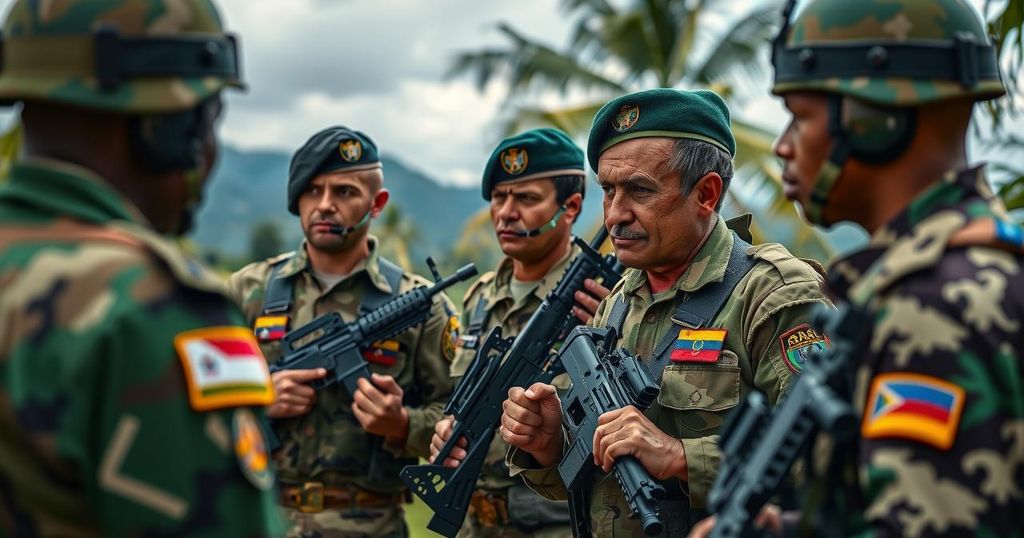Russia Deploys Military Instructors to Secure Equatorial Guinea’s President

Russia has sent around 200 military instructors to Equatorial Guinea to bolster the security of President Teodoro Obiang Nguema Mbasogo and potentially prepare for the succession of his son. Observers suggest this move is part of Russia’s broader strategy to strengthen its influence in Central Africa, where it has already established a presence through mercenary support for military regimes. President Obiang has maintained his rule since a coup in 1979, emphasizing the need for increased security measures in a politically volatile region.
Approximately 200 Russian military instructors have been deployed to Equatorial Guinea with the purpose of enhancing the security of President Teodoro Obiang Nguema Mbasogo. This contingent is set to train elite security units specifically tasked with the protection of the president and his potential successor, Teodoro Nguema Obiang Mangue. The mission might also include military personnel from Belarus as well as representatives from Russian airborne forces. These developments suggest a strategic move by Russia to augment its influence in Central and West Africa. Equatorial Guinea has already seen the presence of numerous Russian mercenaries engaged in supporting military regimes amid ongoing conflicts with insurgent groups. President Obiang, who has ruled the country since 1979 following a coup, appears to be reinforcing his security measures in light of potential threats. The involvement of foreign military forces underscores the growing geopolitical complexities in the region, and analysts speculate that Russia’s actions are aimed at bolstering its foothold in Africa, particularly in nations where political stability is tenuous. This situation highlights the intricate relations between military assistance and political security in Central Africa.
The recent deployment of Russian military instructors to Equatorial Guinea reflects broader geopolitical trends wherein powers such as Russia aim to extend their influence in strategically significant regions. Equatorial Guinea, a nation rich in oil reserves yet politically unstable, has been under the authoritarian rule of President Teodoro Obiang Nguema Mbasogo since 1979. The presence of foreign military personnel, including the aforementioned instructors, showcases a critical reliance on external support by the government to maintain its grip on power amid regional unrest and a history of coups and insurgencies. The connection between military training and political stability is crucial for understanding the implications of this deployment.
The dispatch of Russian military instructors to Equatorial Guinea marks a significant endeavor to solidify President Obiang’s security and potentially pave the way for the succession of his son. This action signifies Russia’s continued efforts to establish a stronghold in Central and West Africa, where it has already made substantial inroads through the deployment of mercenaries. As geopolitical landscapes shift, the implications for regional security and governance remain a focal point for international observers.
Original Source: 112.ua








